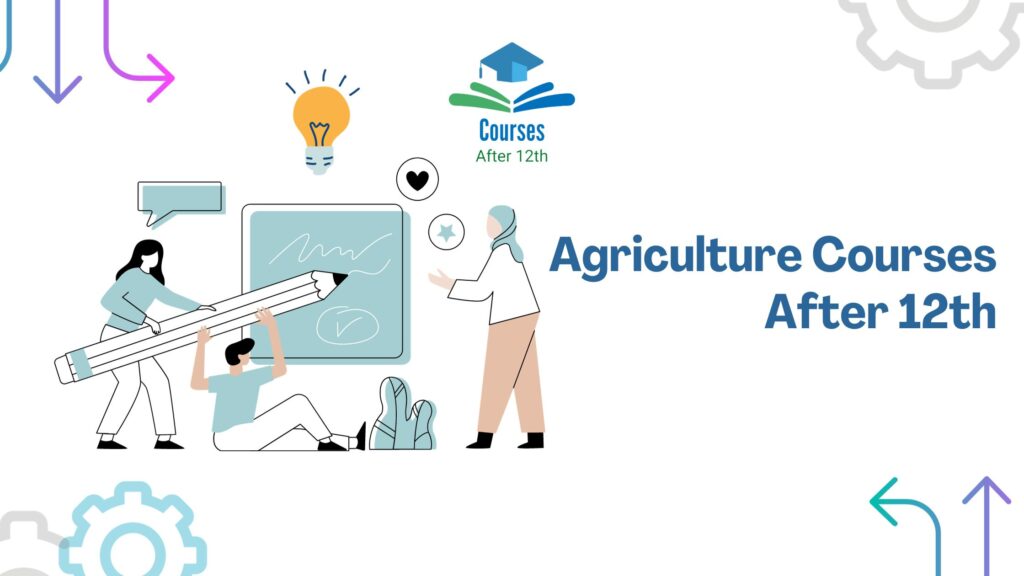
Are you a student who has recently completed your 12th-grade examinations and is now looking for promising career options? Agriculture might not be the first field that comes to mind, but it’s an industry that’s not only rewarding but also essential for the survival of our planet. In this article, we will explore the various agriculture courses after 12th and why they can be a fantastic choice for your future.
Importance of Agriculture Education
Agriculture is the backbone of any nation, providing food, employment, and sustainability. The world’s growing population puts immense pressure on the agriculture sector to innovate and produce more with fewer resources. This is where a well-educated workforce in agriculture becomes crucial.
Eligibility Criteria
To embark on a career in agriculture, you need to meet specific eligibility criteria. While these criteria may vary among institutions, most require a background in science during your 12th grade.
Popular Agriculture Courses After 12th
Several undergraduate programs in agriculture are designed to equip students with practical knowledge and hands-on experience. Let’s delve into some of the prominent agriculture courses you can pursue.
- B.Sc. Agriculture: The Bachelor of Science in Agriculture (B.Sc. Agriculture) is a comprehensive program that covers various aspects of agriculture, from crop cultivation to livestock management. This course usually spans four years and involves a well-rounded curriculum to prepare you for a diverse range of agriculture-related careers.
- B.Tech. Agriculture Engineering: If you’re more inclined towards the technical aspects of agriculture, a B.Tech. in Agriculture Engineering might be your ideal choice. This program focuses on the design and development of machinery and equipment used in agriculture.
- B.Sc. Horticulture: Horticulture is a specialized field within agriculture that deals with the cultivation of fruits, vegetables, nuts, seeds, herbs, sprouts, mushrooms, algae, flowers, seaweeds, non-food crops such as grass and ornamental trees and plants.
Career Prospects
Agriculture offers a wide range of career opportunities, making it a promising field to explore. As a graduate in agriculture, you can work in various sectors, such as agribusiness, research and development, agricultural management, food production, and more. The demand for skilled agriculture professionals is growing, and you can expect a fulfilling career ahead.
Government vs. Private Institutes
Choosing the right institute for your agriculture course is crucial. Government agricultural colleges offer quality education with lower fees. On the other hand, private institutions provide a range of courses with more personalized attention.
Scholarships and Financial Aid
Studying agriculture can be financially challenging, but there are numerous scholarships and financial aid options available. These options can help ease the financial burden on aspiring agriculture students.
Challenges in Agriculture Education
Despite the many opportunities in agriculture, this field comes with its unique set of challenges. The practical nature of the courses often requires students to spend long hours outdoors and get their hands dirty. Additionally, issues like climate change and unpredictable weather patterns pose challenges to the agricultural sector.
Scope of Modern Farming Techniques
Modern agriculture is no longer limited to traditional farming methods. The application of technology, data analytics, and sustainable practices has transformed the industry. As an agriculture student, you will have the opportunity to explore and contribute to these evolving techniques.
Agriculture Entrepreneurship
Entrepreneurship in agriculture is booming. As an agriculture graduate, you can start your own agricultural venture, focusing on innovative practices and sustainable solutions. This path not only promises independence but also the opportunity to make a significant impact on the agriculture sector.
Conclusion
In conclusion, pursuing agriculture courses after 12th is a path to a fulfilling and impactful career. It provides a bridge between traditional farming practices and modern, sustainable agriculture. With the world’s growing population and increasing demand for food security, the role of agriculture professionals has never been more critical.
FAQs (Frequently Asked Questions)
Are there job opportunities for agriculture graduates in urban areas?
Yes, agriculture graduates can find job opportunities in various sectors, including agribusiness, agricultural consultancy, and research and development, which may be based in urban areas.
What are the employment prospects for agriculture engineers?
Agriculture engineers have promising employment prospects, primarily in the design and development of innovative farming equipment and sustainable agriculture practices.
How can I finance my agriculture education?
Several scholarships, grants, and financial aid options are available for agriculture students. Research and apply for these opportunities to help fund your education.
Is entrepreneurship in agriculture a viable career option?
Absolutely! Agriculture entrepreneurship is on the rise, offering opportunities to innovate and create sustainable, environmentally friendly farming practices.
Can I switch between different fields of agriculture during my education?
Depending on the institution and its curriculum, you might have the flexibility to explore different fields of agriculture within your chosen course.
Final Words
By choosing agriculture courses after 12th, you’re not only investing in your future but also contributing to a more sustainable and food-secure world. So, if you have a passion for farming, sustainability, and innovation, the world of agriculture is calling your name!
